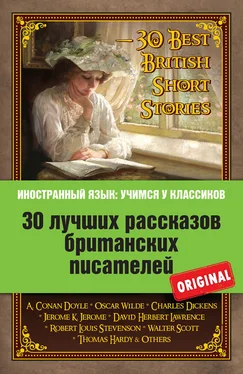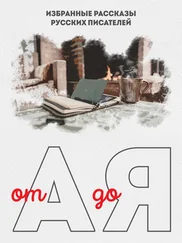‘A Poet! O, I did not know that.’
Mrs. Marchmill opened one of the books, and saw the owner’s name written on the title-page. ‘Dear me!’ she continued; ‘I know his name very well – Robert Trewe – of course I do; and his writings! And it is his rooms we have taken, and him we have turned out of his home?’
Ella Marchmill, sitting down alone a few minutes later, thought with interested surprise of Robert Trewe. Her own latter history will best explain that interest. Herself the only daughter of a struggling man of letters, she had during the last year or two taken to writing poems, in an endeavor to find a congenial channel in which let flow her painfully embayed emotions, whose former limpidity and sparkle seemed departing in the stagnation caused by the routine of a practical household and the gloom of bearing children to a commonplace father. These poems, subscribed with masculine pseudonym, had appeared in various obscure magazines, and in two cases in rather prominent ones. In the second of the latter the page which bore her effusion at the bottom, in smallish print, bore at the top, in large print, a few verses on the same subject by this very man, Robert Trewe. Both of them, had, in fact, been struck by a tragic incident reported in the daily papers, and had used it simultaneously as an inspiration, the editor remarking in a note upon the coincidence, and that the excellence of both poems prompted him to give them together.
After that event Ella, otherwise ‘John Ivy,’ had watched with much attention the appearance anywhere in print of verse bearing the signature of Robert Trewe, who, with a man’s unsusceptibility on the question of sex, had never once thought of passing himself off as a woman. To be sure, Mrs. Marchmill had satisfied herself with a sort of reason for doing the contrary in her case; since nobody might believe in her inspiration if they found that the sentiments came from a pushing tradesman’s wife, from the mother of three children by a matter-of-fact small-arms manufacturer.
Trewe’s verse contrasted with that of the rank and file of recent minor poets in being impassioned rather than ingenious, luxuriant rather than finished. Neither symbolistnor decadent, he was a pessimist in so far as that character applies to a man who looks at the worst contingencies as well as the best in the human condition. Being little attracted by excellences of form and rhythm apart from content, he sometimes, when feeling outran his artistic speed, perpetrated sonnets in the loosely rhymed Elizabethan fashion, which every right-minded reviewer said he ought not to have done.
With sad and hopeless envy Ella Marchmill had often and often scanned the rival poet’s work, so much stronger as it always was than her own feeble lines. She had imitated him, and her inability to touch his level would send her into fits of despondency. Months passed away thus, till she observed from the publishers’ list that Trewe had collected his fugitive pieces into a volume, which was duly issued, and was much or little praised according to chance, and had a sale quite sufficient to pay for the printing.
This step onward had suggested to John Ivy the idea of collecting her pieces also, or at any rate of making up a book of her rhymes by adding many in manuscript to the few that had seen the light, for she had been able to get no great number into print. A ruinous charge was made for costs of publication; a few reviews noticed her poor little volume; but nobody talked of it, nobody bought it, and it fell dead in a fortnight – if it had ever been alive.
The author’s thoughts were diverted to another groove just then by the discovery that she was going to have a third child, and the collapse of her poetical venture had perhaps less effect upon her mind than it might have done if she had been domestically unoccupied. Her husband had paid the publisher’s bill with the doctor’s, and there it all had ended for the time. But, though less than a poet of her century, Ella was more than a mere multiplier of her kind, and latterly she had begun to feel the old afflatus once more. And now by an odd conjunction she found herself in the rooms of Robert Trewe.
She thoughtfully rose from her chair and searched the apartment with the interest of a fellow-tradesman. Yes, the volume of his own verse was among the rest. Though quite familiar with its contents, she read it here as if it spoke aloud to her, then called up Mrs. Hooper, the landlady, for some trivial service, and inquired again about the young man.
‘Well, I’m sure you’d be interested in him, ma’am, if you could see him, only he’s so shy that I don’t suppose you will.’ Mrs. Hooper seemed nothing loth to minister to her tenant’s curiosity about her predecessor. ‘Lived here long? Yes, nearly two years. He keeps on his rooms even when he’s not here: the soft air of this place suits his chest, and he likes to be able to come back at any time. He is mostly writing or reading, and doesn’t see many people, though, for the matter of that, he is such a good, kind young fellow that folks would only be too glad to be friendly with him if they knew him. You don’t meet kind-hearted people every day.’
‘Ah, he’s kind-hearted… and good.’
‘Yes; he’ll oblige me in anything if I ask him. ‘Mr. Trewe,’ I say to him sometimes, you are rather out of spirits.’ ‘Well, I am, Mrs. Hooper,’ he’ll say, ‘though I don’t know how you should find it out.’ ‘Why not take a little change?’ I ask. Then in a day or two he’ll say that he will take a trip to Paris, or Norway, or somewhere; and I assure you he comes back all the better for it.’
‘Ah, indeed! His is a sensitive nature, no doubt.’
‘Yes. Still he’s odd in some things. Once when he had finished a poem of his composition late at night he walked up and down the room rehearsing it; and the floors being so thin – jerry-built houses, you know, though I say it myself – he kept me awake up above him till I wished him further. . . . But we get on very well.’
This was but the beginning of a series of conversations about the rising poet as the days went on. On one of these occasions Mrs. Hooper drew Ella’s attention to what she had not noticed before: minute scribblings in pencil on the wallpaper behind the curtains at the head of the bed.
‘O! let me look,’ said Mrs. Marchmill, unable to conceal a rush of tender curiosity as she bent her pretty face close to the wall.
‘These,’ said Mrs. Hooper, with the manner of a woman who knew things, ‘are the very beginnings and first thoughts of his verses. He has tried to rub most of them out, but you can read them still. My belief is that he wakes up in the night, you know, with some rhyme in his head, and jots it down there on the wall lest he should forget it by the morning. Some of these very lines you see here I have seen afterwards in print in the magazines. Some are newer; indeed, I have not seen that one before. It must have been done only a few days ago.’
‘O, yes!…’ Ella Marchmill flushed without knowing why, and suddenly wished her companion would go away, now that the information was imparted. An indescribable consciousness of personal interest rather than literary made her anxious to read the inscription alone; and she accordingly waited till she could do so, with a sense that a great store of emotion would be enjoyed in the act.
Perhaps because the sea was choppy outside the Island, Ella’s husband found it much pleasanter to go sailing and steaming about without his wife, who was a bad sailor, than with her. He did not disdain to go thus alone on board the steamboats of the cheap-trippers, where there was dancing by moonlight, and where the couples would come suddenly down with a lurch into each other’s arms; for, as he blandly told her, the company was too mixed for him to take her amid such scenes. Thus, while this thriving manufacturer got a great deal of change and sea-air out of his sojourn here, the life, external at least, of Ella was monotonous enough, and mainly consisted in passing a certain number of hours each day in bathing and walking up and down a stretch of shore. But the poetic impulse having again waxed strong, she was possessed by an inner flame which left her hardly conscious of what was proceeding around her.
Читать дальше
Конец ознакомительного отрывка
Купить книгу












